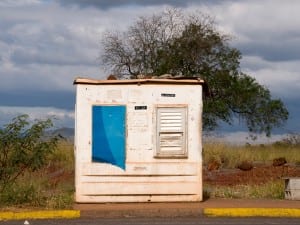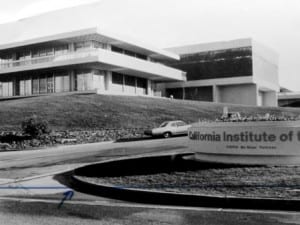Encounters Short Film Festival returns in 2012 with an even wider and more diverse spectrum of fascinating films, negotiating subjects ranging from the claustrophobia of captivity to the accidental beauty of the workplace, from regret and redemption to the unexpectedly fitting rewards of misguided optimism.
Perhaps the most challenging of this year’s showcased work, in terms of subject matter, was Isabella Eklöf’s Notes From Underground: the story of a young girl held captive in the basement of an abandoned house by a man who abuses her, physically and psychologically. Inspired by Sabine Dardenne’s memoir “I Choose to Live”, which recounts Dardenne’s own experience of captivity, Notes is an unsentimental account of what Eklöf terms “the greyness of horror”. The film refuses to let the audience into the minds of the characters, favouring instead an almost documentary-like exposition of its subject. In a complex scene exemplifying this directorial approach, captive Anita is presented with a new doll. After she is left alone in her cell, she proceeds to slowly and purposefully take the doll apart piece by piece, thus voicing not only her frustration and need for control, but also her overwhelming boredom. Lærke E. Engelshardt is a revelation in the role of Anita, and her unadorned performance brilliantly encapsulates Eklöf’s take on horror: “It’s dull, it’s tedious, it eats the soul from the inside”.
Deserving winner of the Documentary Award, Finlay Pretsell and Adrian McDowall’s Cutting Loose explores how the annual Prison Hairdressing competition helps some of the prisoners to come to terms with their crimes and regain a sense of self-esteem. In the documentary tradition of Louis Theroux, Pretsell and McDowall refrain from passing judgement on the people whose stories they tell, or from pushing any kind of agenda through the film. Rather, the direction takes a step back and allows space for the people in it to reveal their own characters, thus allowing the audience to form their own opinions. The film focuses on a specific segment of prison life to provide a clear-headed exploration of the wider underpinning issues: how incarceration affects the family unit, and how prisoners can retain a sense of normalcy while serving their sentence, which would in turn allow for a smoother reintroduction into society once this sentence is spent.
Yuri Ancarani’s The Chief is a visual symphony taking a marble quarry in Carrara as a starting point from which to explore themes of smallness and magnitude, the relativity of power and domination, the uneasy relationship between man, machine, and nature. The themes are developed through the evocative imagery of continuous juxtapositions involving the Capo: the dark figure against the vast whiteness of the quarry; the smallness of man against the hugeness of the diggers, and the precarious rein of the former over the barely bridled power of the latter; the relentless thunderous roar of the machines against the silent sign language of the Capo.
Graham Page’s DepicT! Entry Atrox Iter uses the 90-second time-limit to frame the inner monologue of a London commuter on a seemingly interminable tube escalator, following the ascent in a long tracking shot. The script is precise in its haphazard jumping about, true to the workings of inner reflection, and yet strangely lyrical and evocative of a growing sense of foreboding and impending despair.
In her Brief Encounters Grand Prix Award-winning Premature, Gunhild Enger expertly frames the action in a way that draws the viewer into the awkwardness of the first-time meeting between Spanish Lucia and her Norwegian partner Martin’s parents. Ingeniously, the two key moments in the story – the first introductions at the beginning and the argument between mother and son at the end – take place off-camera. The rest of the film consists of one uninterrupted shot, framed uncomfortably close to the four actors in the interior of the car: a directorial choice clearly intended to underscore the palpable awkwardness of the situation, itself exacerbated by the long journey in cramped conditions, and the quickly-rising tension between Martin’s mother and pregnant Lucia.
The works showcased during Encounters 2012 have once again demonstrated that the short film medium is a cinematic force to be reckoned with – a powerful tool for innovation, for the negotiation of hard-hitting subject matter, for the masterful exploration of humanity in all its complex, magical, absurd, terrible beauty.
Encounters ran from September 18 until 23, read all the inside information at www.encounters-festival.org.uk
Regina Papachlimitzou
Credits
1. Cutting Loose Hair, Finlay Pretsell.
2. Noter Fra Kaelderen-Isabella-Eklof.





